'Take It to Make It': Josh Green Builds Confidence in Game 3 Win for Mavs
The Dallas Mavericks have won consecutive playoff matchups against the Utah Jazz despite Luka Doncic not being in the lineup. Following their 126-118 win in Game 3, the Mavericks hold a 2-1 series lead with their superstar's potential return looming.
Largely, the Mavericks have succeeded by maximizing their shooting capabilities in lineup choices and converting on catch-and-shoot attempts at a high clip. Their average of 41.7 points per game in this area leads all NBA teams by a 6.7 margin and has outproduced the Jazz by 19.7.
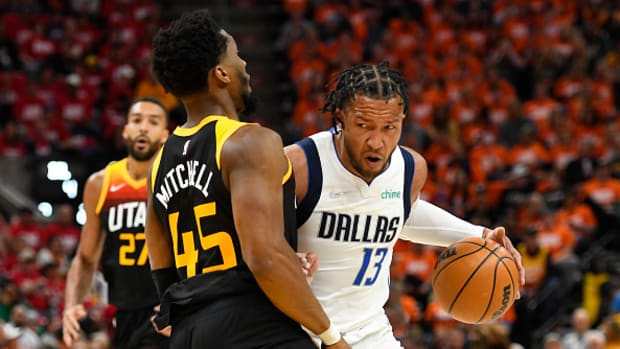
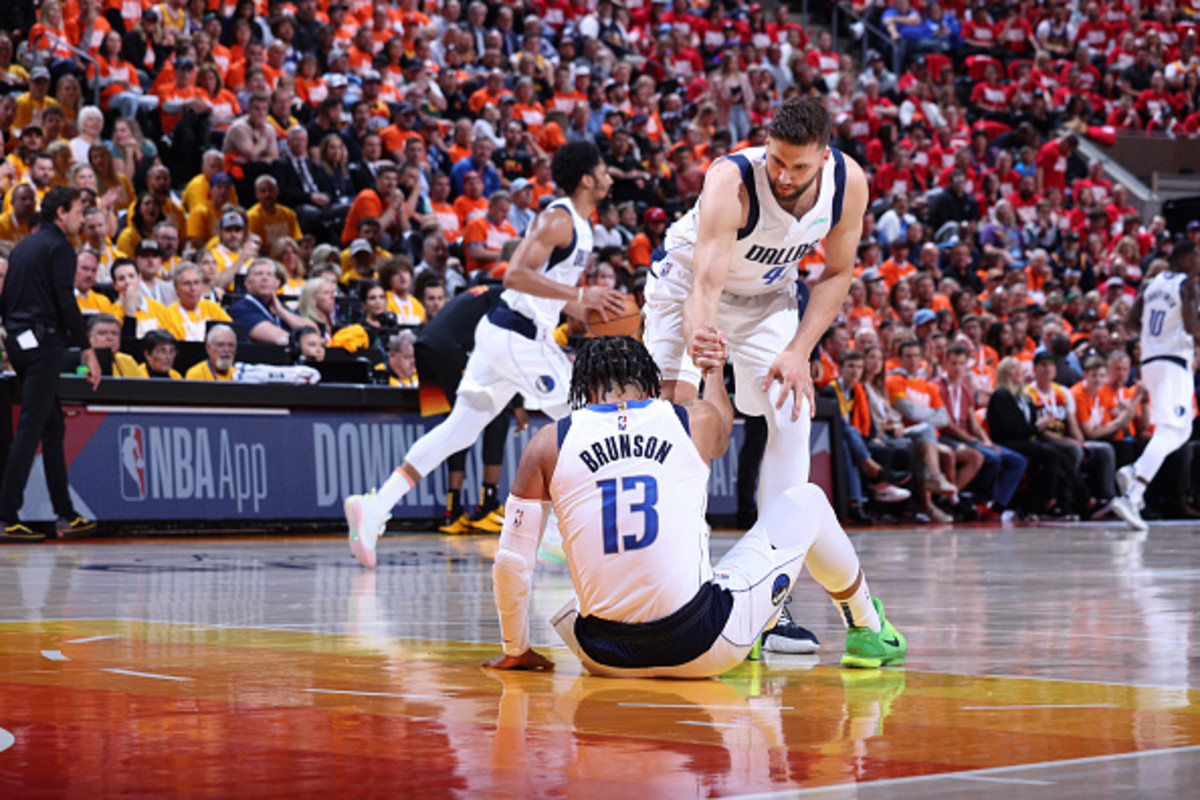
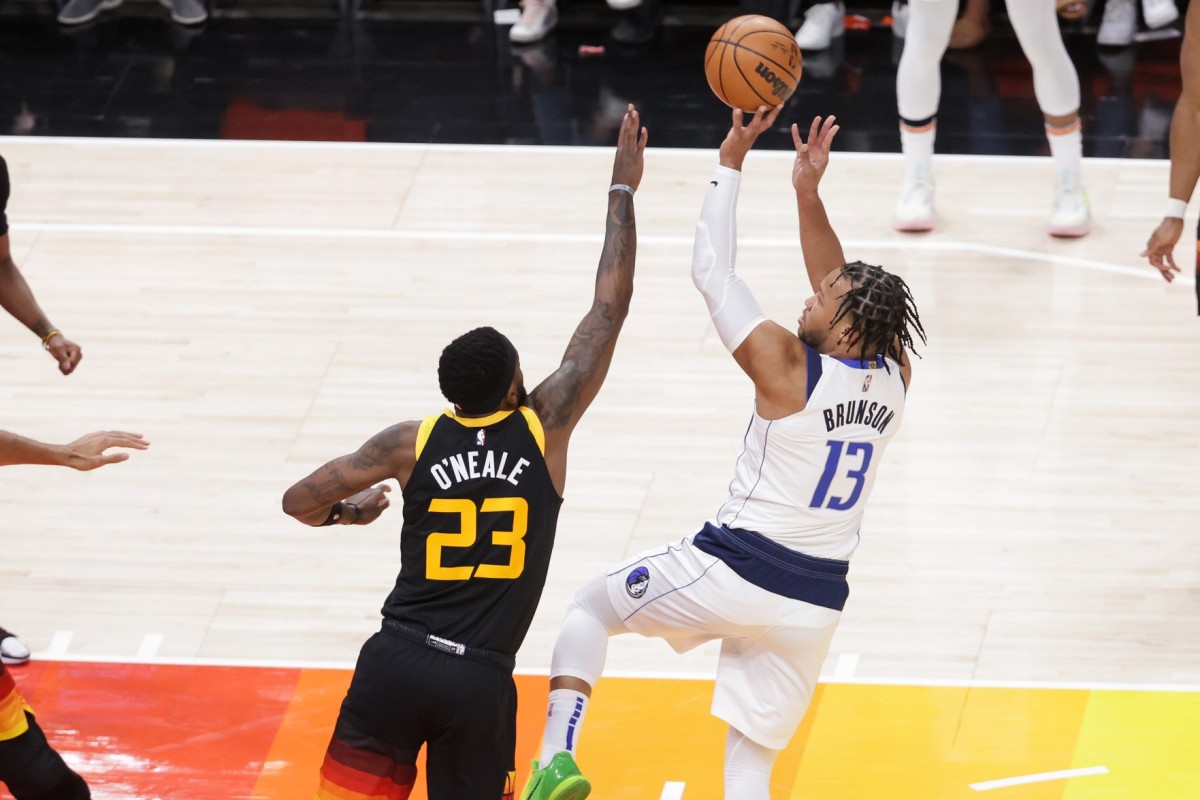
By placing so many shooting threats together in the same lineup, the Mavericks have done their best to neutralize the paint presence of Rudy Gobert. The Jazz placed him on Dallas' least potent shooting threat, often either Dwight Powell or Josh Green depending on the lineup.
The Jazz largely experienced noticeable success in their strategy of leaving Green open in order to keep Gobert near the paint. In the initial two games of the series, Green shot 0-6 on 3s and the Mavericks produced just an 86.2 offensive rating with him on the court.
There were some efforts from the Mavericks to overcome Green being left completely off the ball before he started converting on his catch-and-shoot attempts in Game 3. The height of their achievement when trying to counter was to involve Green in a handoff out of the corner — setting up a pitchback opportunity knowing the Jazz wouldn't switch.
It was clear, that Green needed to start making his open catch-and-shoot attempts if he was going to receive playing time. There was a clear focus from him when spacing off the ball to be ready to shoot before the catch and he capitalized — shooting 3-5 (60.0 percent) on his 3s in Game 3.
“What makes this team special is Josh had those looks the first two games and his teammates truly told him he has to shoot it, this is the right play, and today they went in,” Mavericks coach Jason Kidd said.
Green, who finished with 12 points and six assists in Game 3, understood he needed to make open shots. A key factor in doing so was knowing he had the trust of his coaches and teammates. Even after missing all of his 3-point attempts early in the series, the Mavericks knew his overall value is too great to give up on him that early.
“I think going into the game, obviously I was struggling shooting my threes the first couple of games," Green said. “For me just going in knowing that I shot well in the regular season, go in with the same attitude. At the end of the day if you want to make them you’ve got to take them.
“It’s always good to have the coaches trust, the coaches behind you, the coaches talking to you – (telling me to) ‘shoot it every time. Every time you’re open, shoot it.’ That means so much, not just for me, but the whole team in general. It gets us on a roll, it shows that the coaches trust us. We really trust what the coaches are doing and the coaches’ game plan, and it’s how we execute that and go out and play as a team and play for each other.”
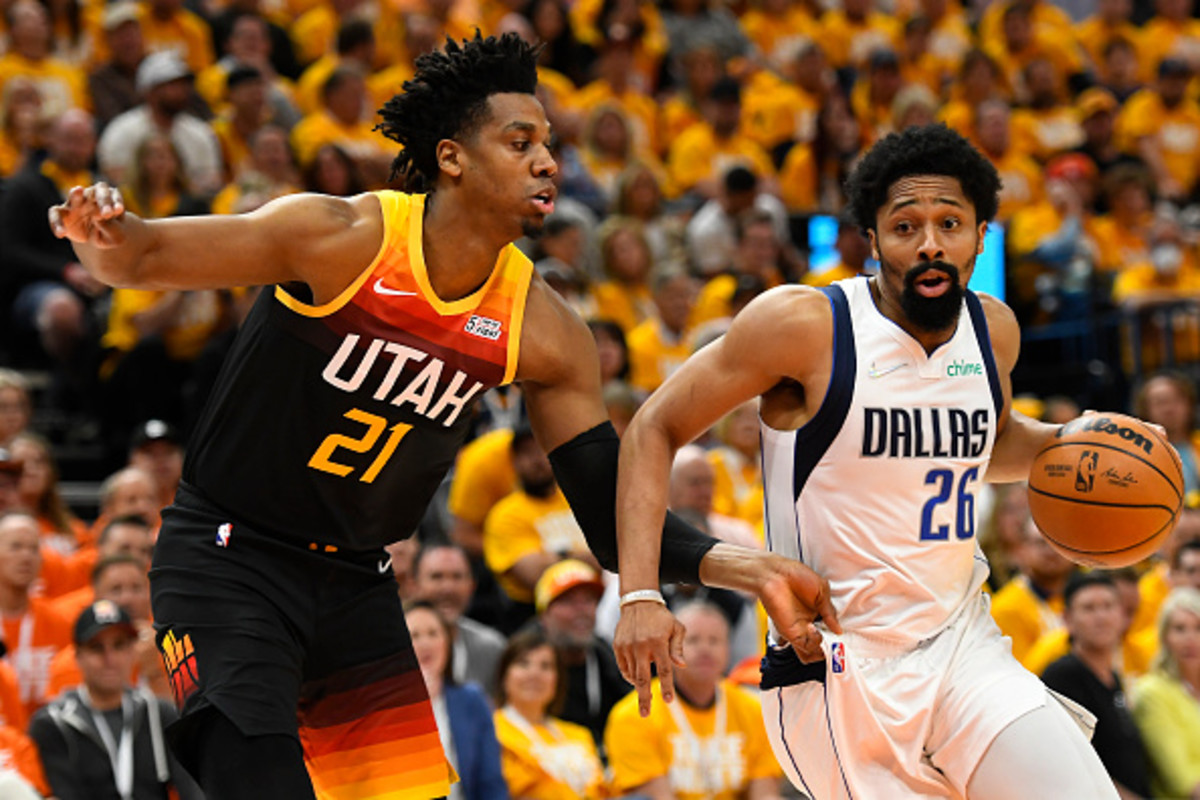
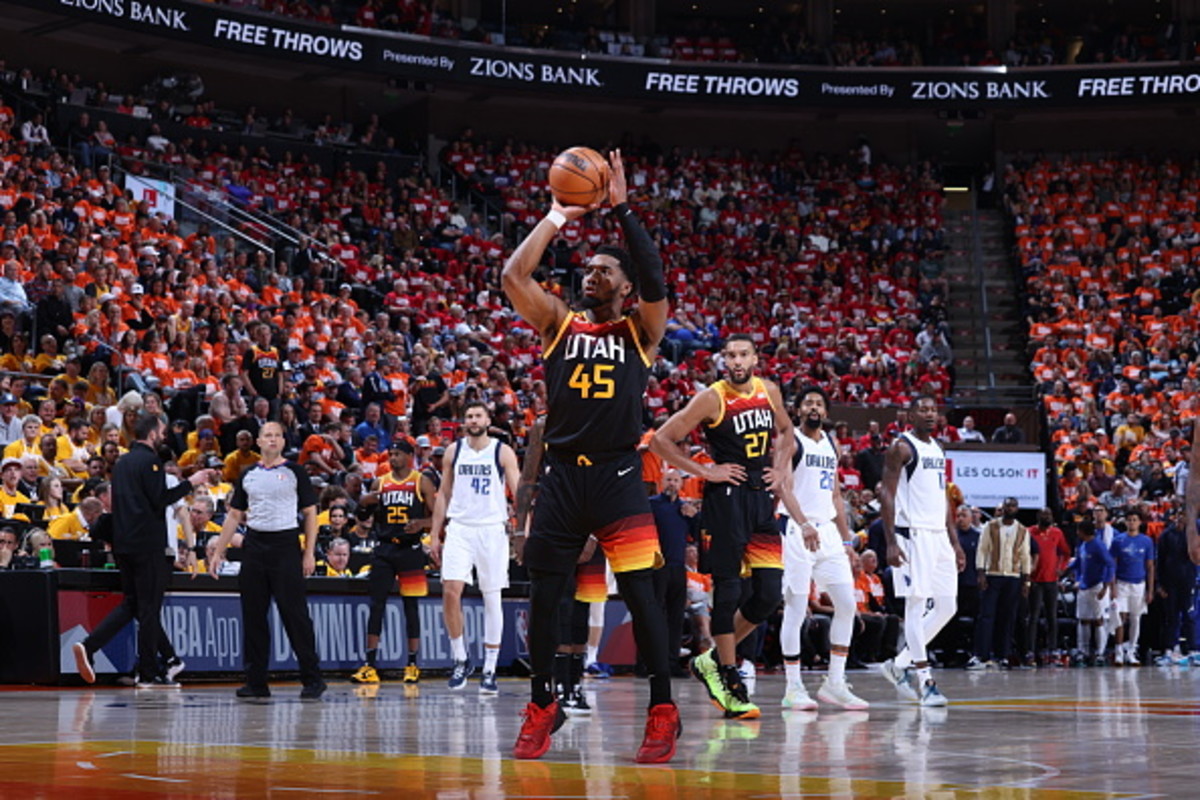
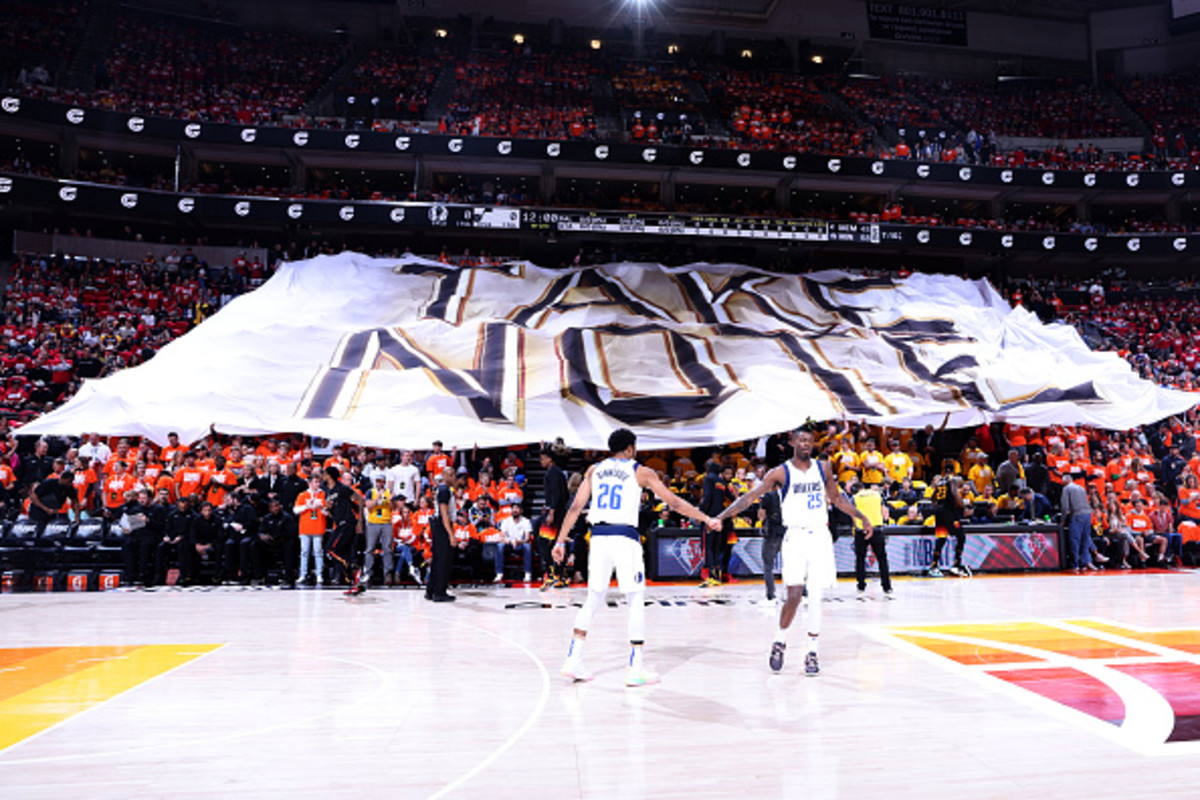
The impact that Green provided the Mavericks in Game 3 was pretty significant. His combination of speed, strength, and unrelenting energy enhances the overall capabilities of the defense. It's a real asset to have multiple players like that in the playoffs. It helps a team achieve high-intensity execution for a full as close to 48 minutes as possible.
While there were a few mistakes — mostly fouling a few times when contesting jumpers — Green was made plenty of positive defensive contributions. He contained Clarkson on a few possessions and went stride for stride when guarding dribble penetration. He is typically due to make opportunistic plays like forcing a turnover and being first to a 50-50 ball, too.
With the Jazz opting to go small in the second half at times of Game 3, having Green to throw into some lineups helped piece together some combinations. Keep in mind, that Dorian Finney-Smith and Reggie Bullock are playing over 44 minutes per game in this series, so whatever Green can offer on the wing is needed.
Green also offers secondary playmaking that not many role-player wings can provide deep on a drive. Whether he's making a live dribble pass to the weak-side corner on a baseline drive, engaging a teammate for a cut, or drawing help before a pass to a shooter, he's done a bit of everything at times in the passing department.
As the Jazz continue to get desperate, there could be more lineups they deploy where there isn't a big man on the court. When that happens, Green could become all the more important. However, continuing to convert on open catch-and-shoot chances will need to persist for the rest of his skill-set to shine through.
